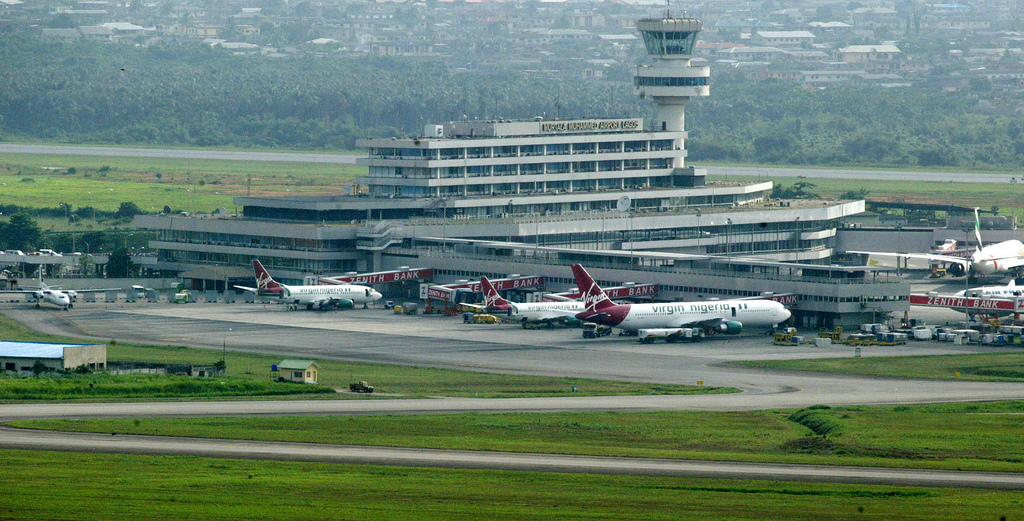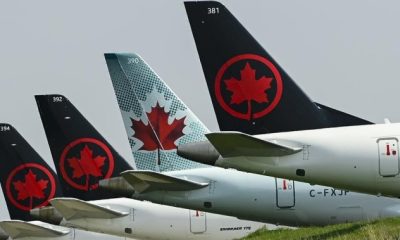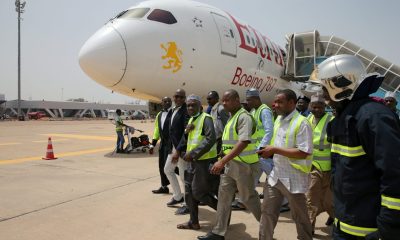Editorial
Saving Nigeria’s Aviation Sector From Imminent Collapse

Nigeria’s aviation sector is at a really harmful crossroads. What initially began with just some challenges hindering operations within the business has now ballooned right into a full disaster. Now, the Nigerian airspace is about to be boycotted by main worldwide airways and Nigerians now should pay extra for tickets than they need to ordinarily do as they now should journey to neighbouring international locations with a purpose to meet up with main worldwide flights.
It’s unhappy to notice that whereas the aviation sector is rising in different climes, the reverse has been the case in Nigeria as no fewer than 50 airways are believed to have folded up within the nation since independence. Whereas most of those airways have been fully owned by Nigerians, others have been co-owned with overseas companions and whereas just some of those airways operated for greater than a yr, some others merely introduced in plane with out ever conveying any passengers earlier than packing up.
That’s the unhappy trajectory of the aviation business in Nigeria. The event is very embarrassing to Nigerians who, sadly, are on the receiving finish of among the misfortunes which have befallen their as soon as affluent economic system.
From the rise within the value of aviation gasoline, which is crippling native airways, to the dearth of recent infrastructure in most of our airports, which hampers the operations of each native and overseas operators, the most important problem now could be the shortcoming of many overseas airways to repatriate their funds from Nigeria because of foreign exchange challenges.

The native operators, appearing beneath the aegis of Airline Operators of Nigeria (AON), had earlier raised the alarm, saying most of its members might fold up their operations as a result of excessive price of providers. Citing challenges encountered every day because of the overbearing angle and pointless fees imposed by authorities companies, AON mentioned its members have misplaced over $60 million to the price of repairs of engines broken by chook strikes with delays, cancellations and refunds additionally gulping a whopping N20 billion.
AON chairman, Onyeama Allen, who can also be the Chairman of Air Peace, mentioned: “Foreign exchange shortage has hit us so badly and it has risen by 200 %. What ought to we do? Over 50 airways have closed store on this nation in lower than 10 years. These are the the explanation why some airways have gone into extinction. We pay about 37 fees. Little marvel, no Nigerian airline is that sturdy.”
Responding in their very own strategy to the challenges, native operators have been pressured to boost the price of a mean native flight (one-way) from N30, 000 in 2021 to the current cost of not lower than N100,000. Some airways that would not bear the tough realities needed to cease operations and extra are certain to pack up with time.
The nation’s airspace shouldn’t be a mattress of roses for overseas airways both. Emirates Airline, penultimate week, dropped the bombshell, saying it could be stopping all flights to Nigeria by September 1, 2022 till additional discover due to its incapacity to repatriate its funds from ticket gross sales trapped within the nation because of foreign exchange challenges. The quantity, in accordance with Emirates, is about $85 million .
The worldwide participant within the aviation world had earlier restricted the frequency of its flights to the nation earlier than slamming the most recent hammer, which, in accordance with an official assertion, is to forestall additional indebtedness occasioned by its trapped funds and the shortcoming of the Federal Authorities to render any assist.
The Worldwide Air Transport Affiliation (IATA) final week put the overall cash of overseas airways trapped in Nigeria at a whopping $464 million, a $14 million enhance from the $450million recorded in Could.
Expressing disappointment over the worrisome scenario, IATA mentioned it was ‘’disillusioned that the quantity of airline cash blocked from repatriation by the Nigerian Authorities grew to $464 million in July,” stressing that its many warnings ‘’that failure to revive well timed repatriation will damage Nigeria with decreased air connectivity are proving true with the withdrawal of Emirates from the market.”
We need to agree with IATA that “Airways can’t be anticipated to fly if they will’t realise income from ticket gross sales,’’ simply as ‘’ Lack of connectivity harms the economic system, hurts investor confidence, impacts jobs and folks’s lives.”
We due to this fact plead with the Federal Authorities to avoid wasting the scenario and do the needful “earlier than extra injury is completed.”
It’s heartwarming, nevertheless, that the Nationwide Union of Air Transport Workers (NUATE) is lending its voice to the talk because it has suggested the federal government to discover the potential for crude oil swap to defray the backlog of the trapped funds which some even imagine might need hit $600 million.
With the exit discover already served by Emirates, we need to imagine that different main airways, akin to British Airways, might also cease operations in Nigeria earlier than the tip of the yr, if nothing is completed to avoid wasting the scenario. The implications of the pull-out are very grave as it would result in large layoffs within the sector alongside different detrimental results on the economic system.
The $265 million launched by the Central Financial institution of Nigeria (CBN) on Friday to the overseas airways is a welcome improvement.
Nigerians have by no means had it so dangerous as they’re having it now. We due to this fact name on the federal government to rise to the scenario and save the aviation sector from complete collapse. A sew in time saves 9!
]


























